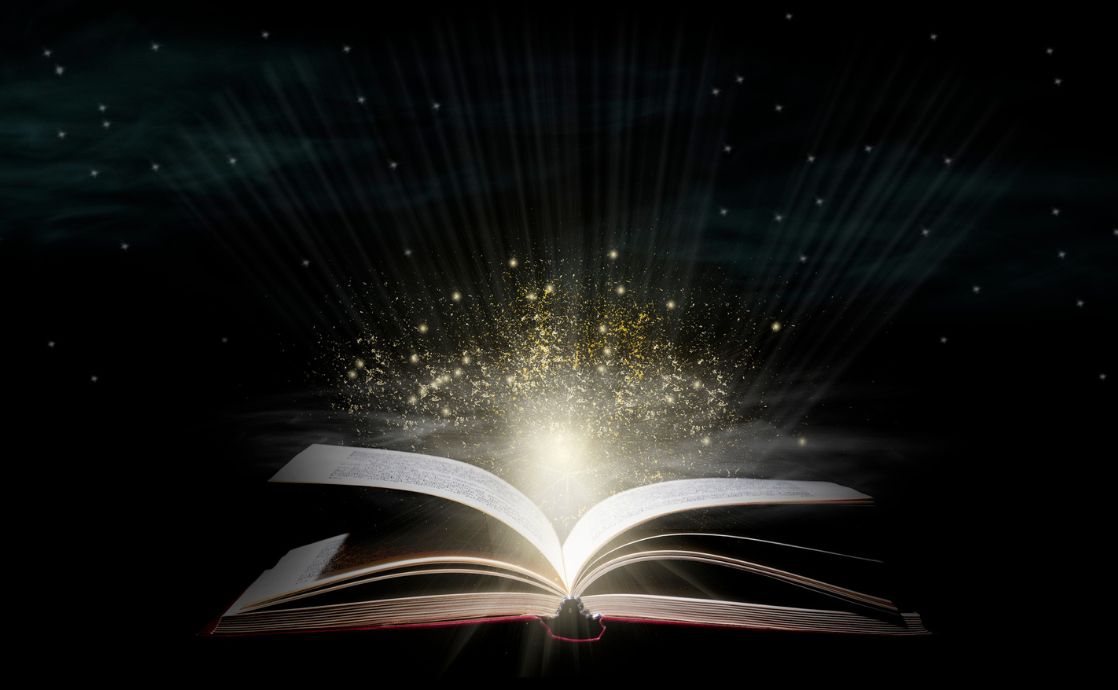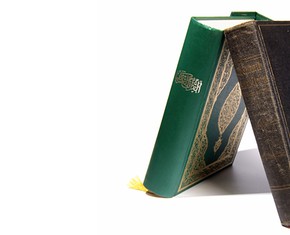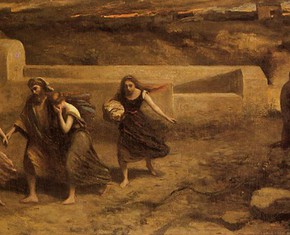The views expressed in our content reflect individual perspectives and do not represent the authoritative views of the Baha'i Faith.
A long time ago, my mother, who was not a Baha’i at the time, had a very sick friend named Madge who requested her help. Madge had late stage cancer, and she asked my mom to pray with her.
Feeling the weightiness of her friend’s request, my Mom came to me and asked, “Do you have any Baha’i prayers we could say, because the ones I know just aren’t going to cut it.”
Smiling at her (and now tearing up a bit), I handed her my prayer book and pointed to The Long Healing Prayer and to The Tablet of Ahmad, my favorite prayers revealed by Baha’u’llah, the prophet and founder of the Baha’i Faith. Mom thanked me, and later said she and her friend had read these prayers together over and over, even as Madge departed this life for the next.
RELATED: Multiple Messiahship: Baha’u’llah as the Return of the Prophets
“Something about those prayers,” Mom said. “Something very special and powerful about them. You can just feel it. You don’t have to know anything about them, even where they came from. Madge never asked me where I got them. She just kept saying, ‘Would you read those prayers again? When I hear them, I feel something lovely.’”
What were my mom and Madge experiencing? What is it that feels so different about reading sacred scripture versus just reading an uplifting passage from any piece of good literature?
In my prayer book the first page of the Tablet of Ahmad includes a preface written on behalf of the Guardian of the Baha’i Faith, Shoghi Effendi. That single sentence tells us a lot about sacred scripture, saying:
These daily obligatory prayers, together with a few other specific ones, such as the Healing Prayer, the Tablet of Ahmad, have been invested by Baha’u’llah with a special potency and significance, and should therefore be accepted as such and be recited by the believers with unquestioning faith and confidence, that through them they may enter into a much closer communion with God, and identify themselves more fully with His laws and precepts.
That’s an awful lot in one sentence. Let’s break it down.
Sacred Scripture and Prayers Have Spiritual Power
First, the prayers revealed by the Creator’s prophets and messengers have power, spiritual power, that can be felt, just like my mom and Madge experienced.
Second, those prayers have significance – they exude importance, substance, gravity, weightiness, impressiveness, remarkableness, and momentousness. In the Tablet of Ahmad itself, Baha’u’llah tells his devoted follower Mirza Ahmad Yazdi, to whom he addressed the tablet:
Learn well this Tablet, O Ahmad. Chant it during they days and withhold not thyself therefrom. For verily, God hath ordained for the one who chanteth it, the reward of a hundred martyrs and a service in both worlds. These favors have We bestowed upon thee as a bounty on Our part and a mercy from our presence, that thou mayest be of those who are grateful.
The reward of a hundred martyrs and service in both worlds? Momentous, indeed.
Who was this Ahmad fellow? He was a 60-year-old devoted Baha’i, who walked the long trek from Baghdad, where he lived, to Adrianople, where Baha’u’llah was unjustly imprisoned. He wanted to be near Baha’u’llah, but after walking 1100 miles he received a letter asking him to turn around, go back to Persia, and teach others about the Baha’i Faith – to, in the words of the prayer, proclaim “to the sincere ones the glad tidings of the nearness of God.”
Baha’u’llah was telling him that praying this tablet and teaching was service to God that would go on in the next life and would be rewarded. The stupendous mystery of the magnitude of that reward remains for all of us to contemplate: “the reward of a hundred martyrs.”
RELATED: The Book of Celestial Inspiration
So, first, the power of sacred scripture can be felt, as Mom and Madge experienced. Second, it is significant and momentous not just in this life, but in the next.
Sacred Scripture Brings Us into Closer Communion with God
Third, Shoghi Effendi’s quote tells us that prayer brings us into “closer communion with God.” What does that mean, and how does prayer do that?
Communion means intimate fellowship, rapport, communication, and closeness – in other words, the opposite of estrangement and disunity. In his Tablet to Manikchi Sahib, Baha’u’llah calls it “understanding” that teaches us, gives us knowledge and wisdom directly from God:
It is clear and evident, therefore, that the first bestowal of God is the Word, and its discoverer and recipient is the power of understanding. This Word is the foremost instructor in the school of existence and the revealer of Him Who is the Almighty. All that is seen is visible only through the light of its wisdom. All that is manifest is but a token of its knowledge. All names are but its name, and the beginning and end of all matters must needs depend upon it.
Notice the word “revealer.” Baha’u’llah’s works (and those of the Bab, the prophet and founder of the Babi Faith, and the forerunner and herald of Baha’u’llah) are called the “Revelation of the Word of God,” because of the manner in which they appeared.
How Does Revelation Generate Sacred Scripture?
Baha’is believe that Baha’u’llah experienced a mystical, sacred state of mind when his over 20,000 unique works were revealed and created. The prophets of God, every one of them, entered into that same sacred state of communion with the Creator and, inspired by what they learned there, revealed it to humanity.
Baha’u’llah wrote furiously quickly to capture these inspired flows of revelatory power. Alternatively, his amanuensis would listen to Baha’u’llah’s verbal outpourings while writing them quickly in a kind of personal shorthand that later had to be carefully transcribed into prose everyone could read.
Many of Baha’u’llah’s original works, mostly in Arabic or Persian or a combination of the two, are stored In Haifa Israel at the Baha’i World Center’s International Archives, a building specially designed to ensure their preservation.
RELATED: What Are the Baha’i Sacred Scriptures?
The Limitless Depth of Meaning in Sacred Scripture
Sacred scripture, because of its origins, in addition to its other qualities, contains a limitless depth of meaning. Baha’u’llah called it the “repository of the living waters:”
Strive, O people, to enter beneath the sheltering shadow of the Word of God. Quaff, then, from it the choice wine of inner meaning and explanation, for it is the repository of the living waters of the All-Glorious and hath appeared from the horizon of the Will of the All-Merciful with matchless splendour. Say: Out of this Most Great Ocean there hath branched the Pre-existent Sea; blessed the one that hath attained and found repose upon its shores.
Sacred scripture has the power to transform both the individual and society. Regarding individuals, Baha’u’llah said we all have the capacity to reap the benefits of sacred scripture:
The Word of God may be likened unto a sapling, whose roots have been implanted in the hearts of men. It is incumbent upon you to foster its growth through the living waters of wisdom, of sanctified and holy words, so that its root may become firmly fixed and its branches may spread out as high as the heavens and beyond.
Regarding the transformative power of the word on society, Baha’u’llah said “The Word of God hath set the heart of the world afire; how regrettable if ye fail to be enkindled with its flame!”
As my Mom and her friend Madge experienced, sacred scripture is sacred because it comes directly from God. It has spiritual power and significance that can be felt in both this world and the next. Since the Baha’i writings and the sacred scriptures of the world’s great Faiths were revealed directly by God, they have a limitless depth of meaning. While the capacity to reap the benefits of the revealed words is innate, growth requires action – actually praying and reciting those “holy words.”
Our personal prayer has even wider implications – the Word of God has the power to set the heart of the world aflame.
















Comments
Sign in or create an account
Continue with Googleor